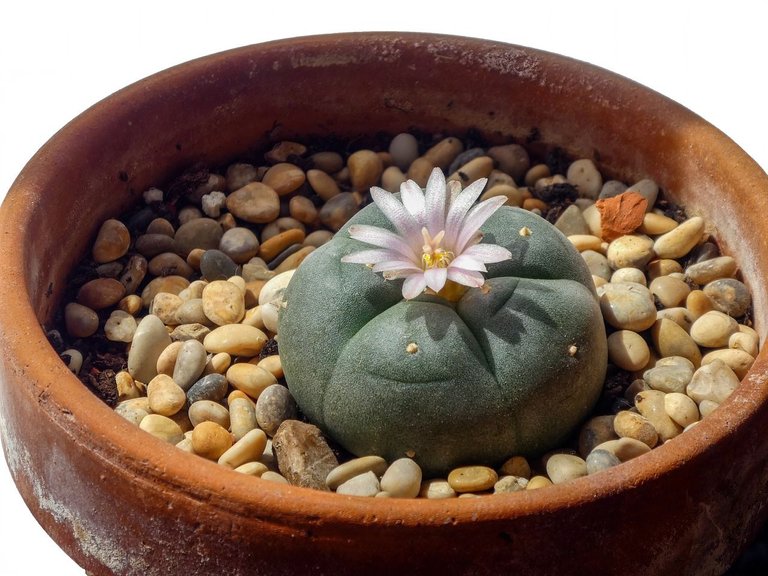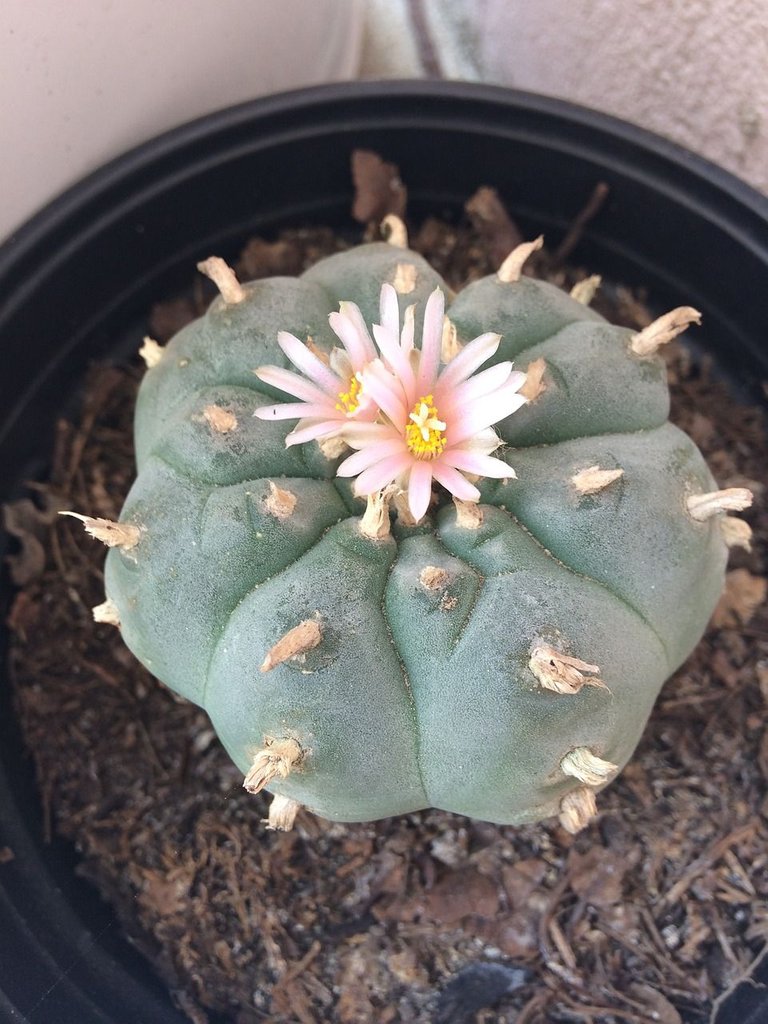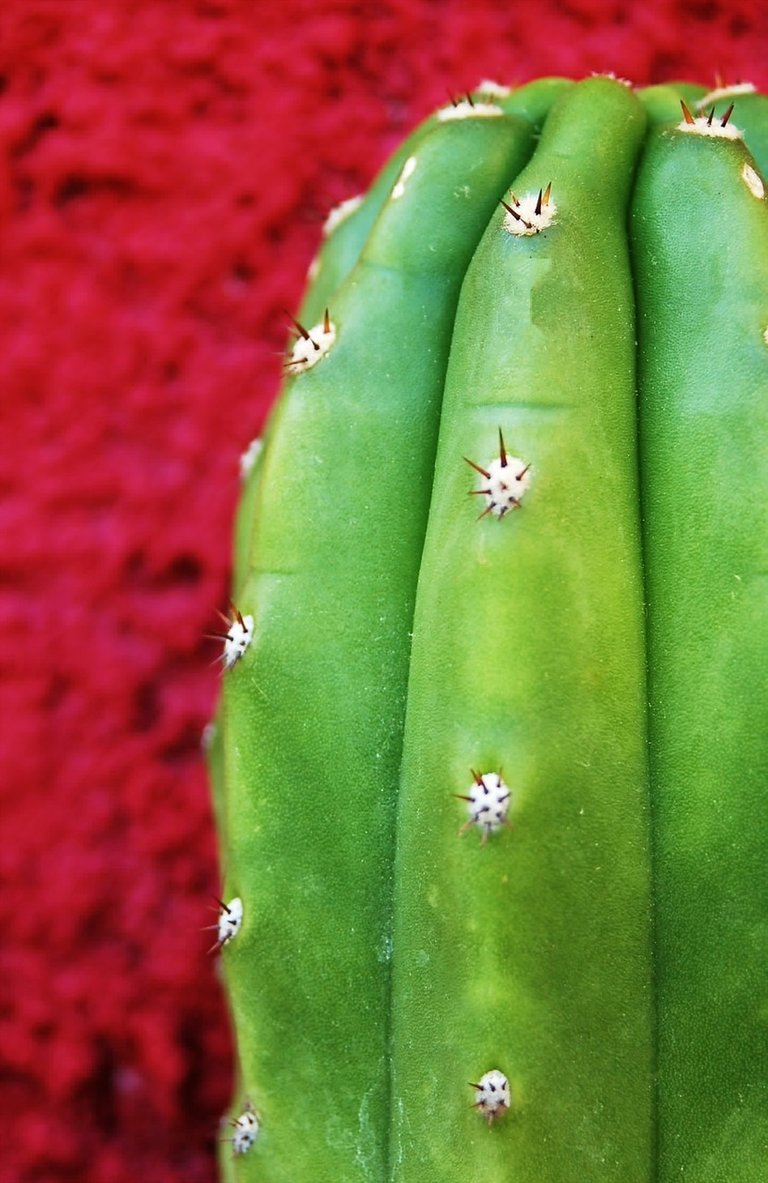Mescaline Uses and Properties
Mescaline uses and properties.
Hello Hive community, today I bring you a very interesting topic: the experimental use of mescaline to treat certain conditions such as depression.
Mescaline is a naturally occurring psychedelic alkaloid found in various cacti, especially peyote (Lophophora williamsii), which is native to northeast Mexico and southwest Texas. Mescaline is also found in other cacti such as the San Pedro (Echinopsis pachanoi) and the Peruvian Torch (Echinopsis peruviana).
This substance is known for its psychedelic effects, which can include visual hallucinations, changes in perception of time and space, and a general feeling of euphoria. These effects are similar to those of other psychedelics such as lysergic acid (LSD) and psilocybin (a substance found in hallucinogenic mushrooms).
Peyote has been used ceremonially and religiously by North American indigenous cultures for centuries. The use of mescaline and other psychedelic alkaloids has also been investigated in the medical and psychological field, and it has been found that they may have benefits in the treatment of certain mental disorders, such as depression and anxiety.
However, its use also carries risks, especially in case of excessive dosage or misuse. Side effects can include nausea, sweating, tremors, and unwanted hallucinations. It has also been reported that prolonged and excessive use of these substances can cause permanent mental disorders.
The therapeutic use of mescaline and other psychedelic alkaloids has been investigated in recent years, with promising results in the treatment of certain mental disorders. One of the disorders that has been investigated in the most depth is treatment-resistant depression.
Depression is a very common mental disorder that affects millions of people around the world. Typical treatment includes antidepressants and therapy, but these approaches are not always effective. In some cases, depression is resistant to treatment, meaning it doesn't respond to conventional treatments.
Research into the use of mescaline to treat treatment-resistant depression has shown promising results. In a pilot study published in the Journal of Psychopharmacology, patients with treatment-resistant depression who received an oral dose of mescaline experienced significant improvement in depression symptoms in the first 24 hours after taking the drug. The researchers also observed a long-term improvement in depressive symptoms in patients treated with mescaline.
Mescaline has also been investigated as a treatment for anxiety. A study published in the Journal of Nervous and Mental Disease found that mescaline significantly reduced anxiety symptoms in patients with generalized anxiety disorder. Patients also reported improved quality of life and a greater sense of well-being.
Mescaline has also been investigated as a treatment for post-traumatic stress disorder (PTSD). A pilot study published in The Journal of Clinical Psychiatry found that mescaline significantly reduced PTSD symptoms in patients who had not responded to other treatments. Patients also reported improved quality of life and a greater sense of well-being.
It has also been investigated as a treatment for schizophrenia. A study published in the Journal of Clinical Psychiatry found that mescaline significantly improved schizophrenia symptoms in patients who had not responded to other treatments. Patients also reported improved quality of life and a greater sense of well-being.
However, it is important to note that these studies are primarily pilot studies and need to be confirmed by larger, controlled studies before mescaline can be considered as an approved treatment for any of these disorders. Also, it is important to mention that mescaline and other psychedelic alkaloids are still classified as controlled substances in many countries, which means their use and distribution are restricted.
Thanks for reading me!
Informative References:
•Pilot Study of the 5-HT2AR Agonist Psilocybin in the Treatment of Tobacco Addiction
Text translated with Google Translate.
Banner created in Canva.

Mescalina usos y propiedades.
Fuente
Hola comunidad de Hive hoy les traigo un tema muy interesante : el uso experimental de la mescalina para tratar ciertas afecciones como la depresión.
La mescalina es un alcaloide psicodélico natural que se encuentra en varias cactáceas, especialmente en la peyote (Lophophora williamsii), la cual es originaria del noreste de México y el suroeste de Texas. La mescalina también se encuentra en otros cactus como el San Pedro (Echinopsis pachanoi) y el Peruvian Torch (Echinopsis peruviana).
Esta sustancia es conocida por sus efectos psicodélicos, que pueden incluir alucinaciones visuales, cambios en la percepción del tiempo y del espacio, y una sensación general de euforia. Estos efectos son similares a los de otros psicodélicos como la lisérgica ácida (LSD) y la psilocibina (una sustancia encontrada en los hongos alucinógenos).
El peyote ha sido utilizado de manera ceremonial y religiosa por las culturas indígenas de América del Norte durante siglos. El uso de la mescalina y otros alcaloides psicodélicos también ha sido investigado en el ámbito médico y psicológico, y se ha encontrado que pueden tener beneficios en el tratamiento de ciertos trastornos mentales, como la depresión y la ansiedad.
Sin embargo, su uso también conlleva riesgos, especialmente en caso de una dosis excesiva o de un mal uso. Los efectos secundarios pueden incluir náuseas, sudoración, temblores y alucinaciones no deseadas. También se ha reportado que el uso prolongado y excesivo de estas sustancias puede causar trastornos mentales permanentes.
El uso terapéutico de la mescalina y otros alcaloides psicodélicos ha sido investigado en los últimos años, con resultados prometedores en el tratamiento de ciertos trastornos mentales. Uno de los trastornos en los que se ha investigado con más profundidad es la depresión resistente al tratamiento.
La depresión es un trastorno mental muy común que afecta a millones de personas en todo el mundo. El tratamiento típico incluye antidepresivos y terapia, pero estos enfoques no siempre son eficaces. En algunos casos, la depresión es resistente al tratamiento, lo que significa que no responde a los tratamientos convencionales.
La investigación en el uso de la mescalina para tratar la depresión resistente al tratamiento ha mostrado resultados prometedores. En un estudio piloto publicado en el Journal of Psychopharmacology, los pacientes con depresión resistente al tratamiento que recibieron una dosis oral de mescalina experimentaron una mejoría significativa en los síntomas de depresión en las primeras 24 horas después de la administración de la droga. Los investigadores también observaron una mejoría a largo plazo en los síntomas de depresión en los pacientes tratados con mescalina.
La mescalina también ha sido investigada como un tratamiento para la ansiedad. Un estudio publicado en el Journal of Nervous and Mental Disease encontró que la mescalina redujo significativamente los síntomas de ansiedad en pacientes con trastorno de ansiedad generalizada. Los pacientes también informaron una mejoría en la calidad de vida y una mayor sensación de bienestar.
La mescalina también ha sido investigada como un tratamiento para el trastorno de estrés postraumático (TEPT). Un estudio piloto publicado en The Journal of Clinical Psychiatry encontró que la mescalina redujo significativamente los síntomas de TEPT en pacientes que no habían respondido a otros tratamientos. Los pacientes también informaron una mejoría en la calidad de vida y una mayor sensación de bienestar.
También ha sido investigada como un tratamiento para la esquizofrenia. Un estudio publicado en el Journal of Clinical Psychiatry encontró que la mescalina mejoró significativamente los síntomas de esquizofrenia en pacientes que no habían respondido a otros tratamientos. Los pacientes también informaron una mejoría en la calidad de vida y una mayor sensación de bienestar.
Sin embargo, es importante señalar que estos estudios son principalmente estudios piloto y necesitan ser confirmados con estudios más amplios y controlados antes de que la mescalina pueda ser considerada como un tratamiento aprobado para cualquiera de estos trastornos. Además, es importante mencionar que la mescalina y otros alcaloides psicodélicos todavía están clasificados como sustancias controladas en muchos países, lo que significa que su uso y distribución están restringidos.
Gracias por leerme!
Referencias Informativas:
•Pilot Study of the 5-HT2AR Agonist Psilocybin in the Treatment of Tobacco Addiction
Texto traducido con Google Translate.
Banner creado en Canva.




https://twitter.com/1418383605793890310/status/1638612815345754112
The rewards earned on this comment will go directly to the people( @elluismma ) sharing the post on Twitter as long as they are registered with @poshtoken. Sign up at https://hiveposh.com.
Thanks for your contribution to the STEMsocial community. Feel free to join us on discord to get to know the rest of us!
Please consider delegating to the @stemsocial account (85% of the curation rewards are returned).
You may also include @stemsocial as a beneficiary of the rewards of this post to get a stronger support.
Congratulations @elluismma! You have completed the following achievement on the Hive blockchain And have been rewarded with New badge(s)
Your next target is to reach 8000 upvotes.
You can view your badges on your board and compare yourself to others in the Ranking
If you no longer want to receive notifications, reply to this comment with the word
STOPCheck out our last posts:
There is reasonable evidence that this article is machine-generated. Posting such content is considered fraud.
Fraud is discouraged by the community and may result in the account being Blacklisted.
Guide: Why and How People Abuse and Defraud
If you believe this comment is in error, please contact us in #appeals in Discord.